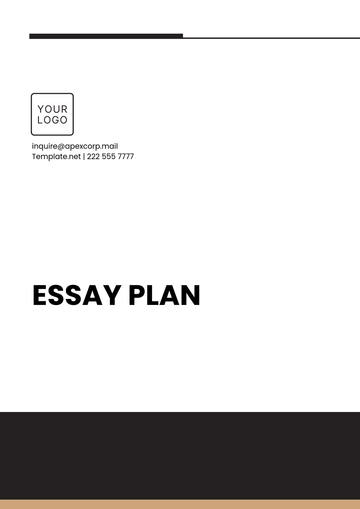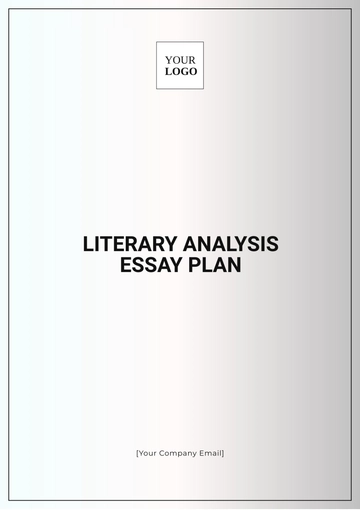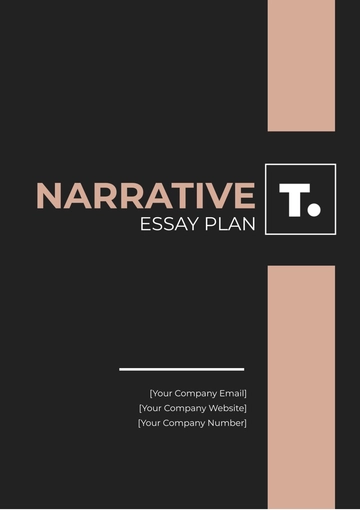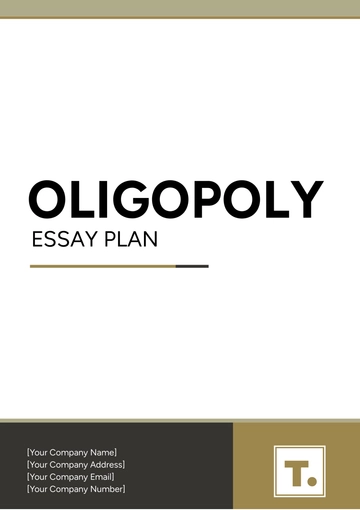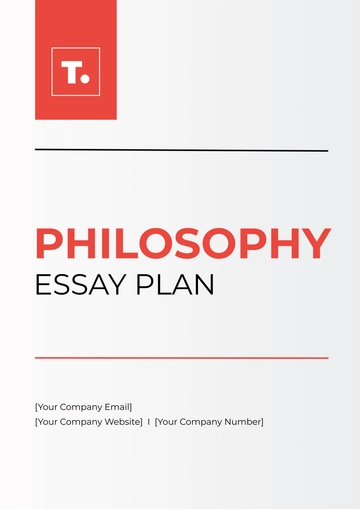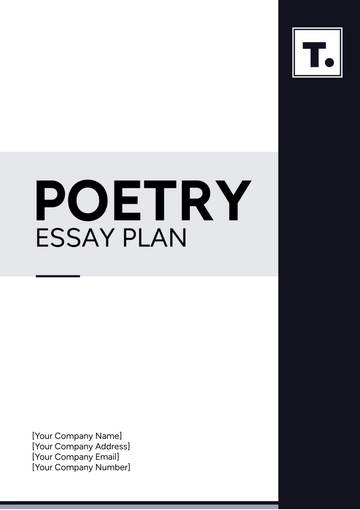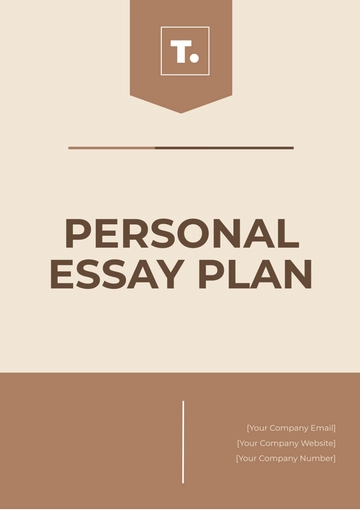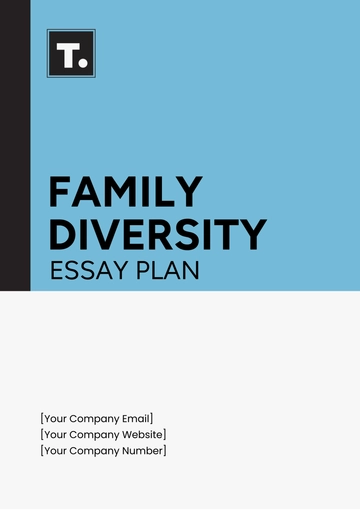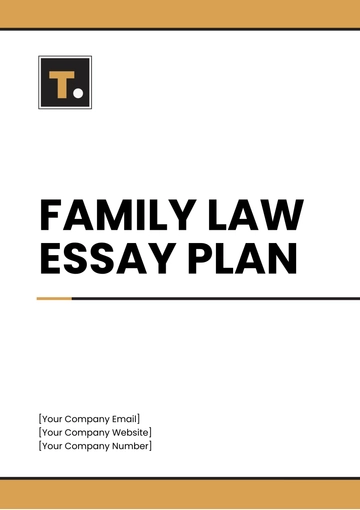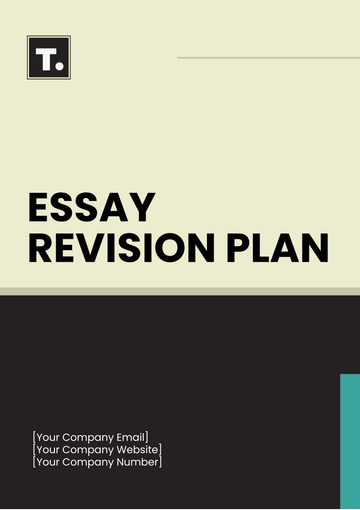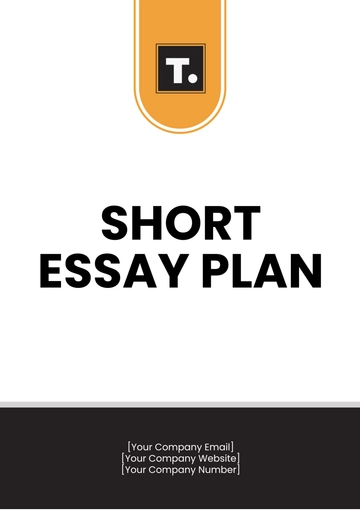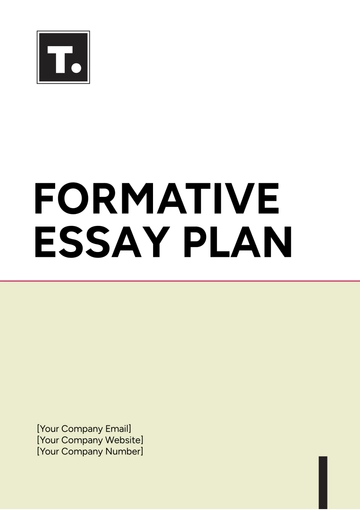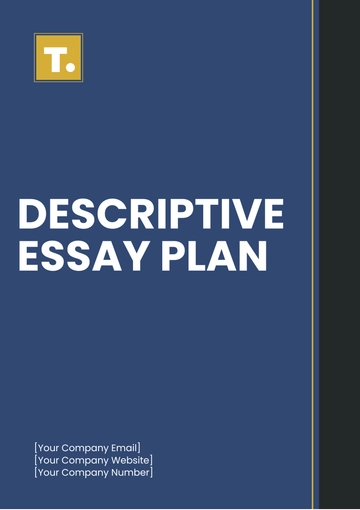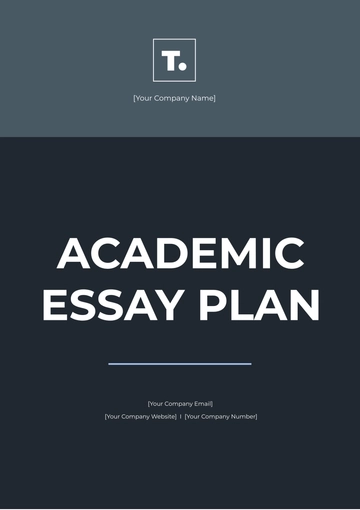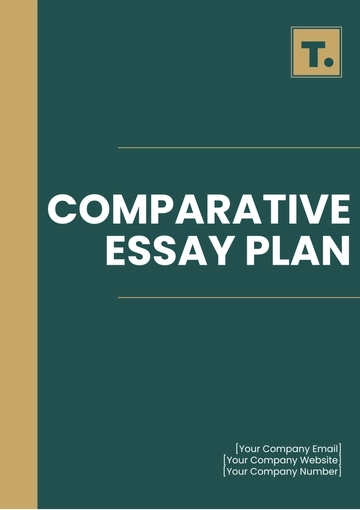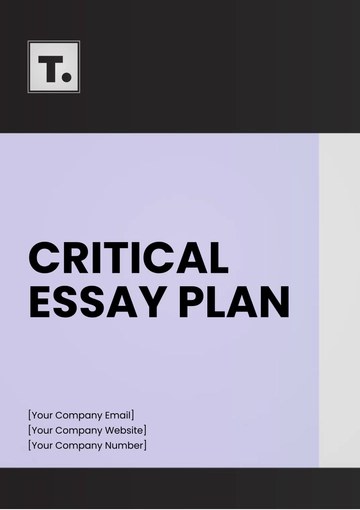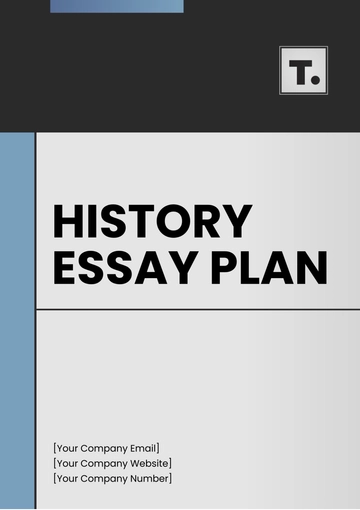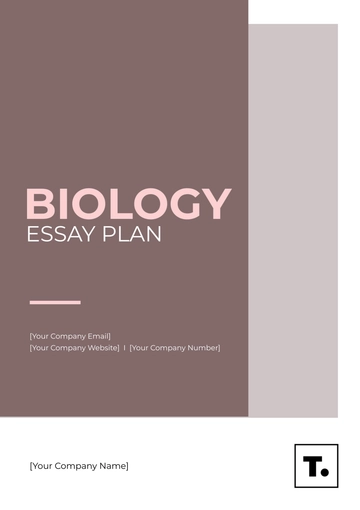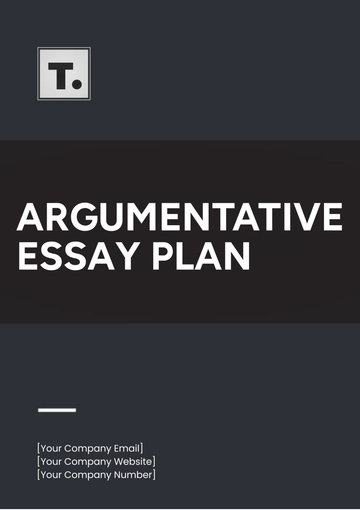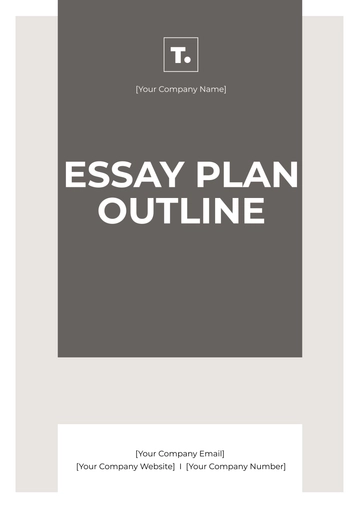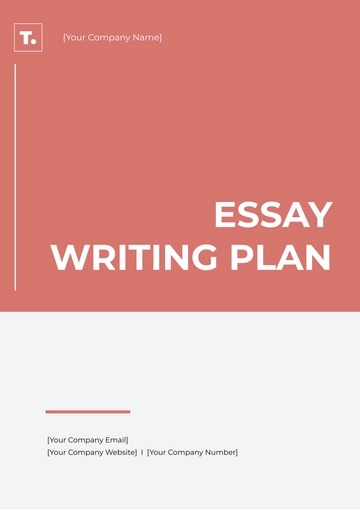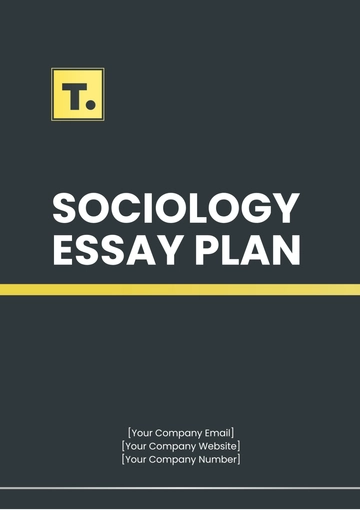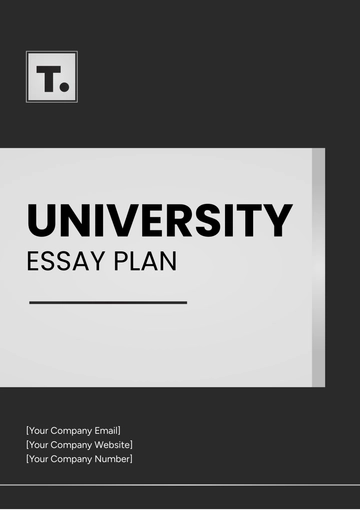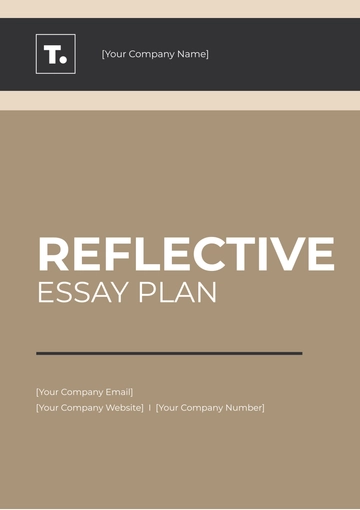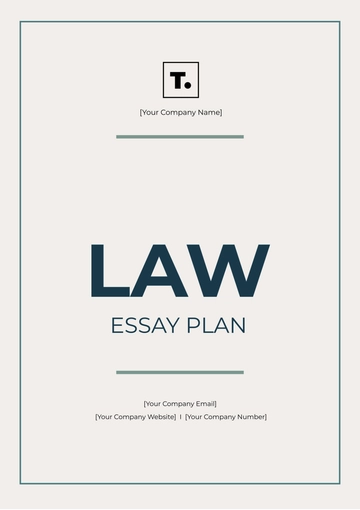Free History Essay Plan
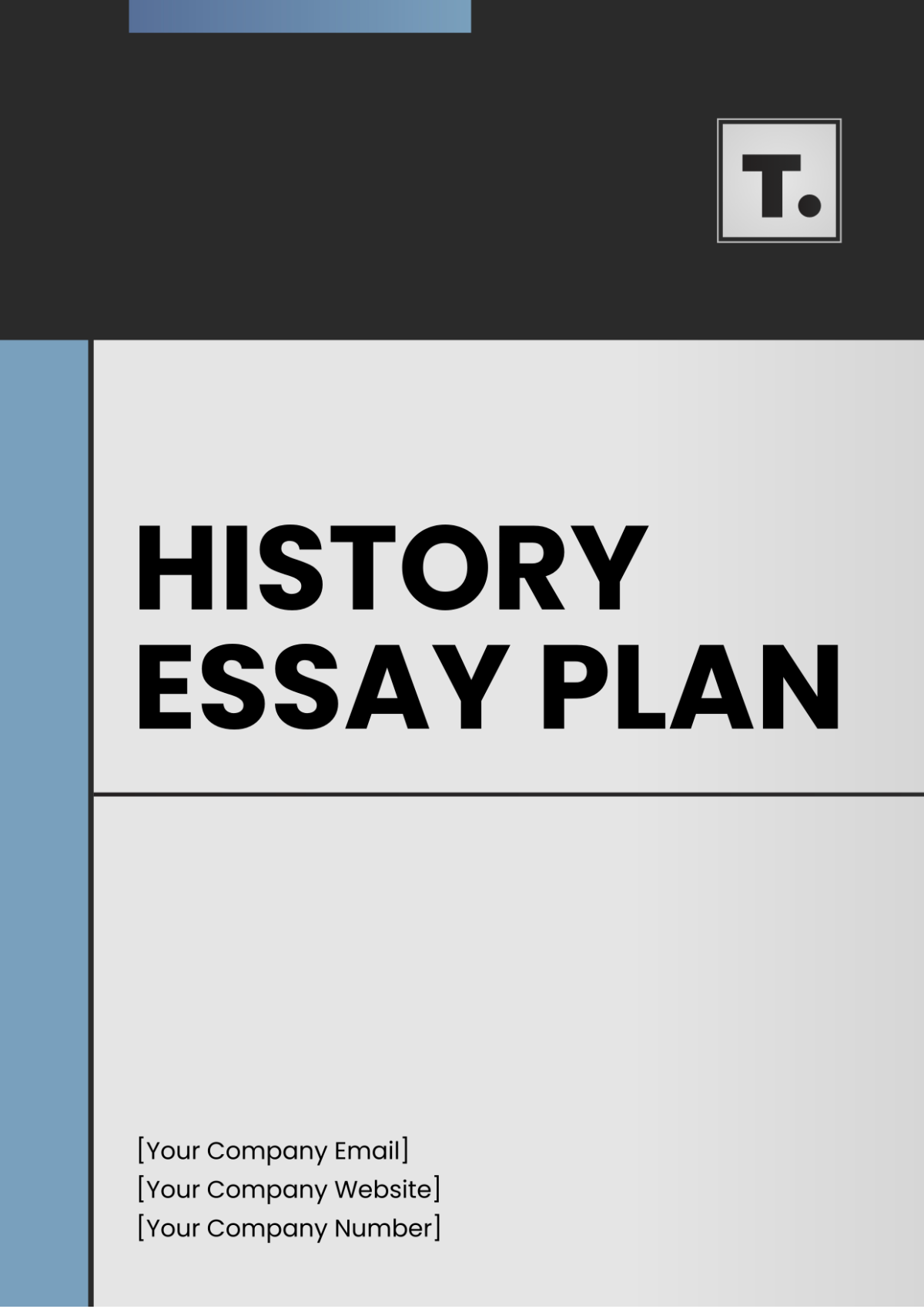
Written by: [YOUR NAME]
I. Introduction
Purpose: To explore and analyze the critical events of [HISTORICAL EVENT] and their lasting effects on contemporary society.
Thesis Statement: An examination of [HISTORICAL EVENT] provides profound insights into its transformative impacts on [Specific Aspect] of modern life.
Context and Background:
Essential dates and facts about the genesis and development of [HISTORICAL EVENT].
Introduction to principal figures and their roles in the event.
Initial impact and immediate global reaction.
II. Historical Context
A. Pre-Event Conditions
Economic, social, and political climate leading up to [HISTORICAL EVENT].
Early indicators and minor events that forecasted [HISTORICAL EVENT].
B. Detailed Event Timeline
2050: Initiation of [EVENT DETAILS]
2051: Major developments and turning points.
2052: Conclusion and immediate aftermath.
C. Key Personalities and Groups
Biographical sketches and contributions of central figures.
Analysis of the influence of various groups and their agendas during [HISTORICAL EVENT].
III. Event Analysis
A. Causes
In-depth discussion on the multiple causes leading to [HISTORICAL EVENT].
Interaction between different national and international forces.
B. Event Progression
Step-by-step analysis of the event’s progression.
Critical decisions made during the event and their ramifications.
C. Consequences
Immediate and long-term effects on the involved societies.
Changes in international relations and global policies as a result of the event.
D. Comparative Perspectives
Comparison with other similar historical events.
Lessons learned and errors repeated across history.
E. Data and Evidence
Table 1: Key Data on Event Progression
Date | Significant Event | Outcome |
|---|---|---|
2050 | [EVENT DETAILS] | [OUTCOME DETAILS] |
2051 | [EVENT DETAILS] | [OUTCOME DETAILS] |
2052 | [EVENT DETAILS] | [OUTCOME DETAILS] |
Table 2: Comparative Impact Analysis
Aspect | Before 2050 | After 2052 |
|---|---|---|
Economic Impact | [DATA] | [DATA] |
Political Stability | [DATA] | [DATA] |
IV. Theoretical Frameworks
A. Historical Theories Applied
Examination of various theoretical frameworks used to analyze [HISTORICAL EVENT].
How different theories offer unique insights or conclusions about the event.
B. Analysis of Historiography
Study of how[HISTORICAL EVENT]has been interpreted differently over time.
Influence of cultural and political contexts on historical interpretations.
V. Modern Implications and Predictions
A. Current Relevance
Direct connections between[HISTORICAL EVENT] and ongoing issues in [RELEVANT FIELDS OR REGIONS].
Predictive analysis based on historical patterns.
B. Future Trends
Potential future scenarios based on historical outcomes.
Suggestions for policy and educational initiatives.
VI. Conclusion
Recap of the main points about[HISTORICAL EVENT] and its comprehensive analysis.
Concluding thoughts on the significance of understanding history for future generations.
VII. Bibliography
Annotated list of primary and secondary sources that provide evidence and narrative for [HISTORICAL EVENT].
VIII. Appendix
Additional data, charts, and documents related to [HISTORICAL EVENT].
- 100% Customizable, free editor
- Access 1 Million+ Templates, photo’s & graphics
- Download or share as a template
- Click and replace photos, graphics, text, backgrounds
- Resize, crop, AI write & more
- Access advanced editor
Crafting a polished history essay just got easier with Template.net's History Essay Plan Template. Tailor your essays effortlessly with this editable and customizable tool, designed to streamline your writing process. Harness the power of our Ai Editor Tool to refine your arguments and structure. Elevate your historical discourse today
You may also like
- Finance Plan
- Construction Plan
- Sales Plan
- Development Plan
- Career Plan
- Budget Plan
- HR Plan
- Education Plan
- Transition Plan
- Work Plan
- Training Plan
- Communication Plan
- Operation Plan
- Health And Safety Plan
- Strategy Plan
- Professional Development Plan
- Advertising Plan
- Risk Management Plan
- Restaurant Plan
- School Plan
- Nursing Home Patient Care Plan
- Nursing Care Plan
- Plan Event
- Startup Plan
- Social Media Plan
- Staffing Plan
- Annual Plan
- Content Plan
- Payment Plan
- Implementation Plan
- Hotel Plan
- Workout Plan
- Accounting Plan
- Campaign Plan
- Essay Plan
- 30 60 90 Day Plan
- Research Plan
- Recruitment Plan
- 90 Day Plan
- Quarterly Plan
- Emergency Plan
- 5 Year Plan
- Gym Plan
- Personal Plan
- IT and Software Plan
- Treatment Plan
- Real Estate Plan
- Law Firm Plan
- Healthcare Plan
- Improvement Plan
- Media Plan
- 5 Year Business Plan
- Learning Plan
- Marketing Campaign Plan
- Travel Agency Plan
- Cleaning Services Plan
- Interior Design Plan
- Performance Plan
- PR Plan
- Birth Plan
- Life Plan
- SEO Plan
- Disaster Recovery Plan
- Continuity Plan
- Launch Plan
- Legal Plan
- Behavior Plan
- Performance Improvement Plan
- Salon Plan
- Security Plan
- Security Management Plan
- Employee Development Plan
- Quality Plan
- Service Improvement Plan
- Growth Plan
- Incident Response Plan
- Basketball Plan
- Emergency Action Plan
- Product Launch Plan
- Spa Plan
- Employee Training Plan
- Data Analysis Plan
- Employee Action Plan
- Territory Plan
- Audit Plan
- Classroom Plan
- Activity Plan
- Parenting Plan
- Care Plan
- Project Execution Plan
- Exercise Plan
- Internship Plan
- Software Development Plan
- Continuous Improvement Plan
- Leave Plan
- 90 Day Sales Plan
- Advertising Agency Plan
- Employee Transition Plan
- Smart Action Plan
- Workplace Safety Plan
- Behavior Change Plan
- Contingency Plan
- Continuity of Operations Plan
- Health Plan
- Quality Control Plan
- Self Plan
- Sports Development Plan
- Change Management Plan
- Ecommerce Plan
- Personal Financial Plan
- Process Improvement Plan
- 30-60-90 Day Sales Plan
- Crisis Management Plan
- Engagement Plan
- Execution Plan
- Pandemic Plan
- Quality Assurance Plan
- Service Continuity Plan
- Agile Project Plan
- Fundraising Plan
- Job Transition Plan
- Asset Maintenance Plan
- Maintenance Plan
- Software Test Plan
- Staff Training and Development Plan
- 3 Year Plan
- Brand Activation Plan
- Release Plan
- Resource Plan
- Risk Mitigation Plan
- Teacher Plan
- 30 60 90 Day Plan for New Manager
- Food Safety Plan
- Food Truck Plan
- Hiring Plan
- Quality Management Plan
- Wellness Plan
- Behavior Intervention Plan
- Bonus Plan
- Investment Plan
- Maternity Leave Plan
- Pandemic Response Plan
- Succession Planning
- Coaching Plan
- Configuration Management Plan
- Remote Work Plan
- Self Care Plan
- Teaching Plan
- 100-Day Plan
- HACCP Plan
- Student Plan
- Sustainability Plan
- 30 60 90 Day Plan for Interview
- Access Plan
- Site Specific Safety Plan
